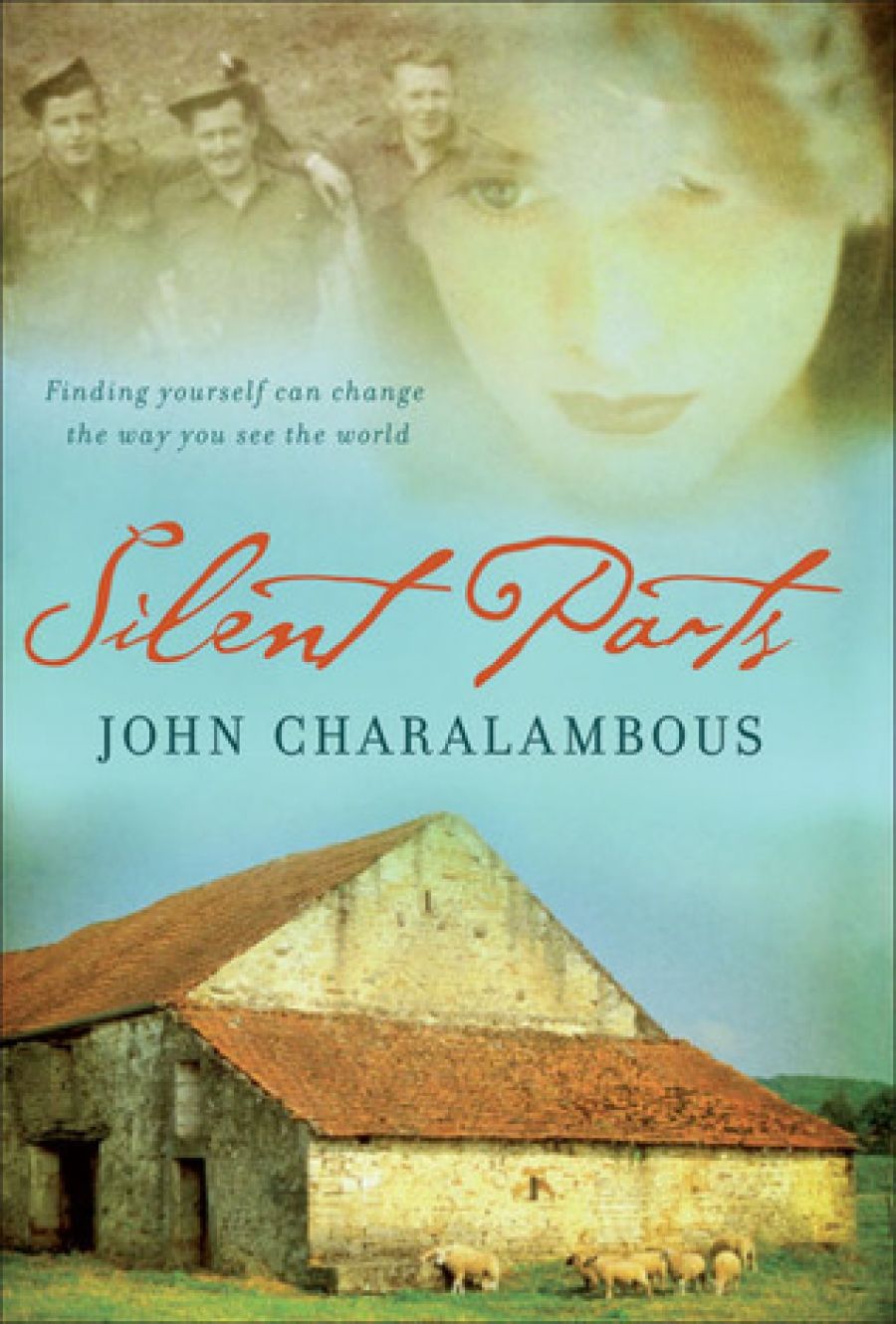
- Free Article: No
- Contents Category: Fiction
- Review Article: Yes
- Online Only: No
- Custom Highlight Text:
Australian novels about World War I are typically tales of youth sacrificed and innocence destroyed in foreign lands for the Commonwealth. A good example is David Malouf’s coming-of-age novella, Fly Away Peter (1981). Nation and character matured simultaneously in the necessary baptism of fire. From the outset, John Charalambous’s second novel, Silent Parts, proves itself to be atypical and complex, with a forty-something anti-hero caught up in the not-so-Great War.
- Book 1 Title: Silent Parts
- Book 1 Biblio: UQP, $24.95 pb, 310 pp
- Book 1 Cover Small (400 x 600):

- Book 1 Cover (800 x 1200):

Upon his mother’s death, Harry Lambert, a lifelong bachelor, is released from his small-town baker’s existence and promptly enlists to fight in France. Instead of Gallipoli glory, he falls into the routine of army bakeries; then the order comes that will send him to the front. Realising that ‘he will not die for them’, Harry deserts to live for himself by tracing the creators of a French rose he remembers from his youth, pursuing beauty to transcend the war. He finds a derelict farmhouse and a love he hadn’t expected.
Interwoven with this narrative is the researching of Harry’s life by his great niece, Julie, who is fascinated by her missing relative. Charalambous uses this thread to build suspense, which keeps Silent Parts engaging and pacey. New levels of the story open up as readers are drawn closer to Harry’s fate. The war menaces in the background as the story curves towards romance, but any sentimentality is banished by Charalambous’s expert characterisation of Harry as a sensitive loner. Other narrators cut in (perhaps too thinly in the case of his female characters), but it is with Harry that Charalambous creates his most intriguing voice. As was the case in Fly Away Peter, Charalambous situates his sensitive character in a conflict, but with Harry there is a delayed coming of age and a gentler realisation of self. With his second novel, Charalambous delivers an exceptional war novel that reinterprets nationalist history for a conflicting Australian present.


Comments powered by CComment